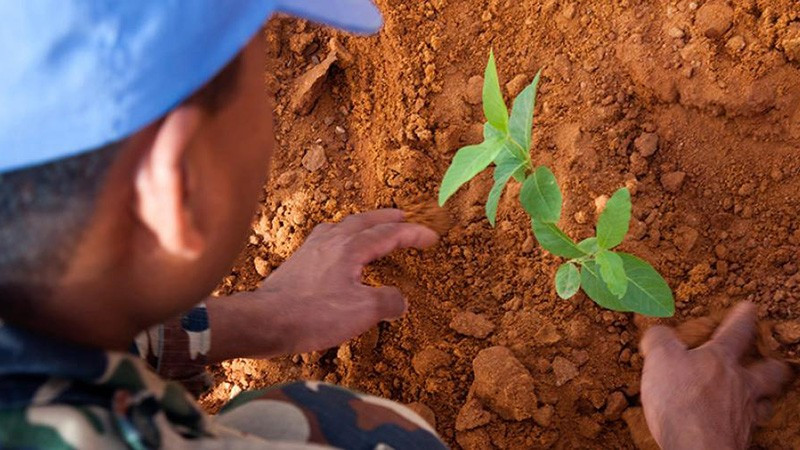June 11 has been chosen by United Nations as the International Day for Preventing the Exploitation of the Environment in War and Armed Conflict.
Conflicts and violence originate from many different causes. However, according to the United Nations Environment Programme (UNEP), about 40% of all internal conflicts have been linked to the exploitation of natural resources, whether high-value resources such as timber, diamonds, gold, and oil, or scarce resources such as fertile land and water.
While natural resources are becoming increasingly scarce, the world's population is growing, leading to an ever-rising demand for exploitation. This is one of the reasons leading to conflicts. Not only that, natural resources also cause conflicts to break out and prolong.
According to the United Nations, in some countries in Africa, armed groups and criminal organisations have illegally exploited and traded mineral and timber products to finance their illegal activities. UNEP said that conflicts that have a link to natural resources are considered to have a high risk of relapse.
Threatening peace and security and reversing the development efforts of nations are obvious consequences of war and conflict. Contaminated water sources, contaminated land, destroyed forests, and depleted resources are also consequences of war and conflict. These activities can go beyond national borders, spread regionally, and leave many serious long-term impacts.
On May 11, 2001, in order to raise awareness of the international community on this issue, the United Nations General Assembly decided to designate June 11 every year as the International Day for Preventing the Exploitation of the Environment in War and Armed Conflict.
This day also affirms nations' commitment to protecting the environment in the context of war, conflict, as well as in peacetime.
If we are to achieve the SDGs, we need to act boldly and urgently to reduce the risks that environmental degradation and climate change present for conflict and commit to protecting our planet from the debilitating effects of war.
United Nations Secretary General Antonio Guterres
In his message released on the occasion of November 6, United Nations Secretary General Antonio Guterres affirmed that the environment is yet another victim of war.
This happens partly due to futile efforts to protect the environment and manage natural resources of governments. If natural resources are managed and monitored more closely, countries can prevent these resources from nurturing those who want to start conflicts.
For countries which are under post-conflict reconstruction, the way governments manage and use natural resources can also provide opportunities to recover economies and support people's livelihoods.
The importance of the environment for sustainable development has been held increasingly more clearly. This can be seen in the fact that environment-related issues have been integrated into the policies and agendas of countries, organisations, and regional and international forums.
Efforts to protect the environment and better the management of natural resources have helped countries in conflict move closer in achieving the sustainable development goals (SDGs).
The United Nations Secretary General stressed that protecting the environment is integral to conflict prevention, peacebuilding, and sustainable development, because there can be no durable peace if the natural resources that sustain livelihoods and ecosystems are destroyed.
According to him, if we are to achieve the SDGs, we need to act boldly and urgently to reduce the risks that environmental degradation and climate change present for conflict and commit to protecting our planet from the debilitating effects of war.
Protecting the environment and sustainably managing natural resources in order to prevent conflict, build peace, and promote long-term prosperity will require the joint efforts from governments, the private sector, and all citizens.
















